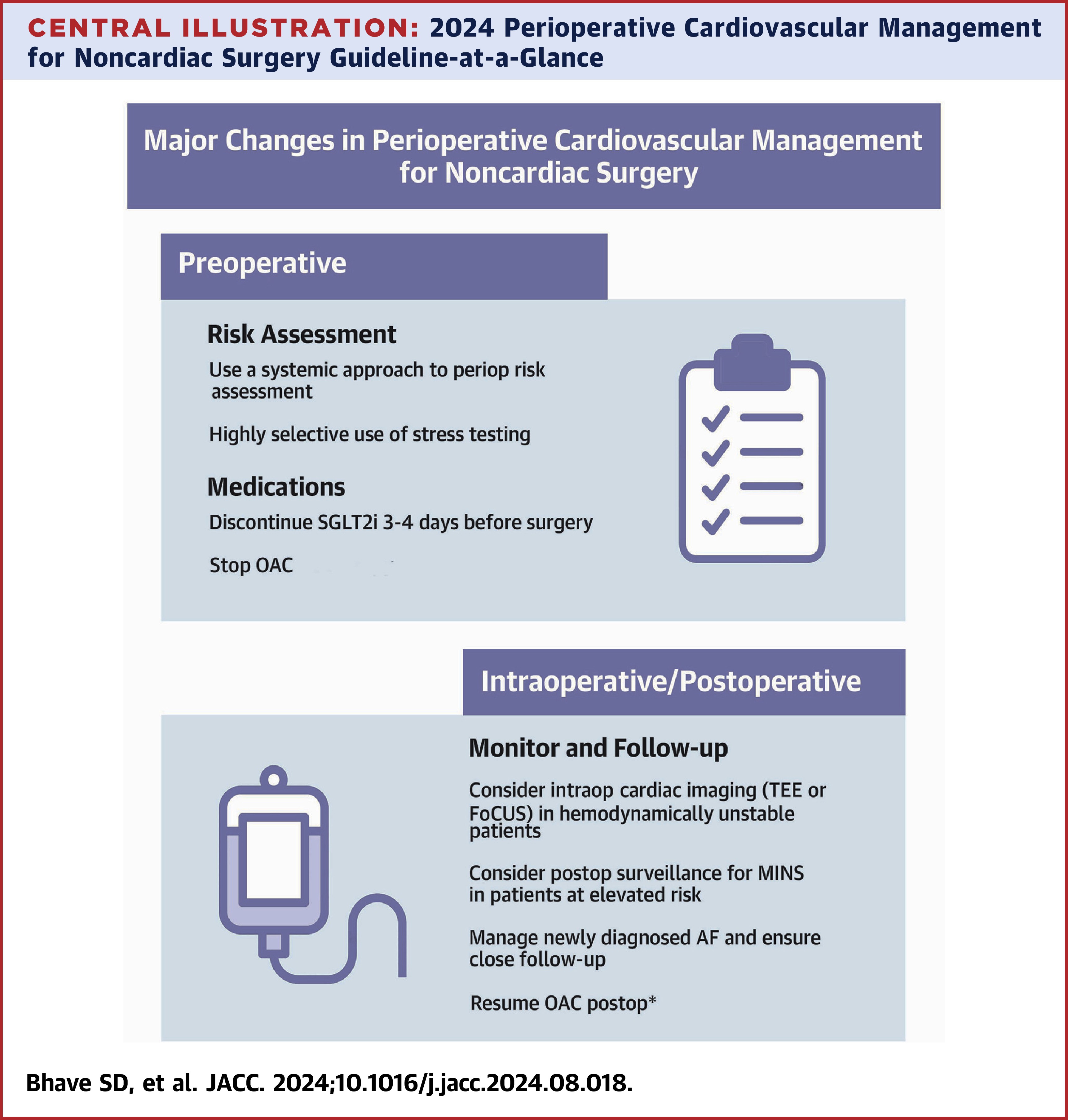ACC, AHA Release New Perioperative Guideline For Patients Undergoing Noncardiac Surgery
The newest clinical guideline released by the ACC and American Heart Association (AHA), in collaboration with seven other societies, provides updated recommendations for perioperative cardiovascular management of patients undergoing noncardiac surgery.
The new guideline incorporates new scientific evidence to build upon the previous ACC/AHA perioperative guideline released in 2014 and includes sections dedicated to the epidemiology of cardiovascular disease and complications; risk calculators; preoperative cardiovascular diagnostic testing; cardiovascular comorbidities and perioperative management; perioperative medical therapy; anesthetic considerations and intraoperative management; and perioperative surveillance and management of myocardial injury and infarction.

"There is a wealth of new evidence about how best to evaluate and manage perioperative cardiovascular risk in patients undergoing noncardiac surgery," said Annemarie Thompson, MD, MBA, chair of the guideline writing group. "This new guideline is a comprehensive review of the latest research to help inform clinicians who manage perioperative patients, with the ultimate goal of restoring health and minimizing cardiovascular complications."
Key highlights from the guideline include a recommended stepwise approach to perioperative cardiac assessment aimed at helping clinicians determine when to proceed with surgery or when further evaluation is needed. Additionally, health care professionals are encouraged to adhere to the same indications as nonsurgical patients and to be judicious and targeted about ordering screenings, such as stress testing, to determine cardiac risk prior to surgery. Team-based care when managing patients with complex anatomy or unstable cardiovascular disease is also strongly emphasized.
The guideline also provides a review of hypertension management before, during and after surgery, and highlights specific recommendations for patients with coronary artery disease, hypertrophic cardiomyopathy, valvular heart disease, atrial fibrillation (AFib) pulmonary hypertension, obstructive sleep apnea and previous stroke.
Perioperative evaluation in special populations of patients, including those undergoing liver and kidney transplantation or obesity and bariatric surgery is another important element of the new guideline. "New therapies for management of diabetes, heart failure, and obesity have significant perioperative implications," write the guideline authors. They highlight that SGLT2 inhibitors should be discontinued three to four days before surgery to minimize the risk of perioperative ketoacidosis associated with their use. (Read more in the Guideline-at-a-Glance in JACC.)
In keeping with ongoing guideline optimization efforts, the guideline also focuses on cost value considerations, as well as evidence gaps and future research directions. For example, the authors highlight that "myocardial injury after noncardiac surgery is a newly identified disease process that should not be ignored because it portends real consequences for affected patients." Ongoing studies are also evaluating how to best manage AFib that occurs after surgery.
This guideline, which was published in both JACC and Circulation was developed with and endorsed by the American College of Surgeons, the American Society of Nuclear Cardiology, the Heart Rhythm Society, the Society of Cardiovascular Anesthesiologists, the Society of Cardiovascular Computed Tomography, the Society of Cardiovascular Magnetic Resonance and the Society of Vascular Medicine.
Clinical Topics: Anticoagulation Management, Arrhythmias and Clinical EP, Anticoagulation Management and Atrial Fibrillation, Atrial Fibrillation/Supraventricular Arrhythmias
Keywords: Perioperative Care, Atrial Fibrillation, Sodium-Glucose Transporter 2 Inhibitors, Anticoagulants
